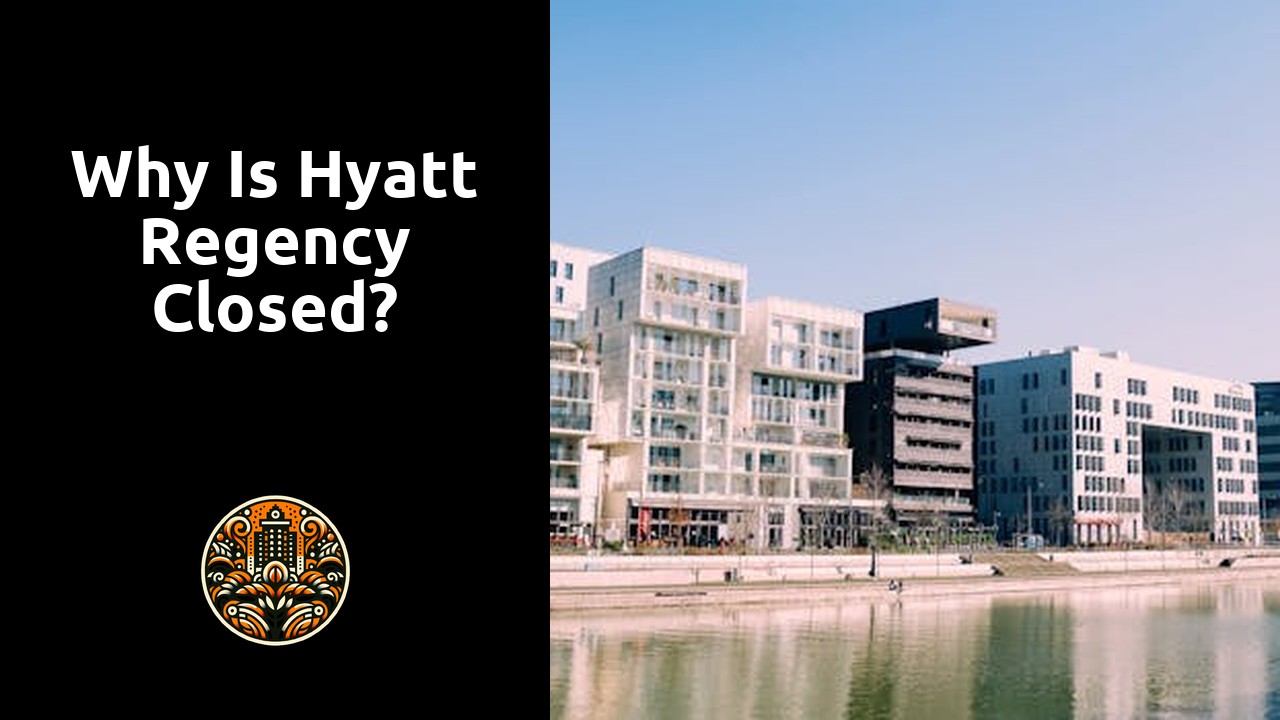Table Of Contents
Legal Aspects of Hyatt Regency Closure
The closure of Hyatt Regency has raised numerous legal aspects that need to be carefully examined. One key aspect revolves around the contractual obligations of the hotel, including agreements with suppliers, employees, and partners. Failure to meet these obligations could potentially lead to litigation and further complicate the closure process.
Moreover, the legal framework surrounding the closure of Hyatt Regency also involves compliance with local and federal regulations. Ensuring that all legal requirements are met during the closure is essential to avoid any potential legal challenges or penalties. Legal advisors and experts are likely to play a crucial role in navigating the complex legal landscape associated with the closure of such a prominent establishment.
Contractual Obligations and Litigation
Amidst the closure of Hyatt Regency, contractual obligations and litigation have surfaced as significant contributors to the hotel’s shutdown. The intricacies of contractual agreements between the property owners, management company, and other involved parties have come under intense scrutiny during this period. The legal disputes arising from these contracts have further complicated the situation, leading to prolonged negotiations and potential legal battles.
Challenges related to contractual obligations have reportedly been exacerbated by disagreements over terms, performance expectations, and financial arrangements. Litigation processes have become a central focus as conflicting parties seek to protect their interests and enforce contractual rights. The resolution of these legal matters will undoubtedly play a crucial role in determining the future of Hyatt Regency and any potential reopening plans.
Historical Context of Hyatt Regency’s Closure
The closure of the Hyatt Regency hotel comes on the heels of a series of challenges faced by the establishment in recent years. The hotel, a prominent fixture in the city’s hospitality sector, has grappled with issues ranging from declining revenue to operational inefficiencies. These difficulties have gradually eroded the hotel’s competitive edge and strained its financial sustainability.
Furthermore, the Hyatt Regency has been operating in an increasingly saturated market, facing stiff competition from both established luxury hotels and emerging boutique accommodations. The dynamics of the hospitality industry have shifted, with changing consumer preferences and the rise of online booking platforms contributing to the hotel’s struggles. As a result, the closure of the Hyatt Regency serves as a cautionary tale for other players in the sector, highlighting the importance of adaptability and strategic management in a volatile business environment.
Previous Challenges Faced by the Hotel
The Hyatt Regency has encountered various challenges throughout its history, contributing to its recent closure. One significant hurdle faced by the hotel was the economic downturn, which led to a decrease in consumer spending on luxury accommodations. As a result, the Hyatt Regency struggled to maintain its competitive edge in the market, facing declining occupancy rates and revenue.
Additionally, the hotel faced challenges in adapting to changing consumer preferences and demands. With the rise of boutique hotels and online booking platforms, the Hyatt Regency found it challenging to attract and retain guests. The hotel’s inability to effectively pivot its marketing strategies and offerings to align with evolving consumer trends further exacerbated its struggles, ultimately impacting its long-term viability.
The Role of Competition in the Closure
The closure of the Hyatt Regency can be attributed, in part, to the fierce competition it faced in the hospitality industry. With an influx of new hotels and accommodations in the area, the market became saturated, leading to a decrease in demand for services at the Hyatt Regency.
Moreover, the rise of online booking platforms and alternative lodging options like Airbnb further intensified the competition for the Hyatt Regency. These factors combined to create a challenging environment for the hotel, making it difficult to attract and retain customers in the face of numerous alternatives.
Market Dynamics and Rivalry
Market dynamics and rivalry play a crucial role in the closure of the Hyatt Regency. The hotel faced fierce competition from other luxury accommodations in the area, leading to a struggle in maintaining its market share. Rival hotels continuously offered attractive packages and promotions, drawing potential customers away from the Hyatt Regency. This intense competition put significant pressure on the hotel’s revenue and profitability, eventually contributing to its closure.
Moreover, the changing landscape of the hospitality industry added another layer of complexity to the Hyatt Regency’s challenges. With the rise of online booking platforms and shared accommodation services, customers now have more options than ever before. This shift in consumer behavior forced traditional hotels like the Hyatt Regency to adapt quickly to new market trends. Unfortunately, the hotel’s inability to pivot effectively and align its offerings with evolving consumer preferences ultimately led to its closure.
FAQS
Why did Hyatt Regency close down?
The closure of Hyatt Regency was primarily due to a combination of legal issues, historical challenges, and intensified competition in the market.
What legal aspects contributed to Hyatt Regency’s closure?
Legal aspects such as contractual obligations and ongoing litigation played a significant role in the decision to close down the Hyatt Regency hotel.
Can you provide some insight into the historical context of Hyatt Regency’s closure?
The historical context of Hyatt Regency’s closure includes a series of previous challenges faced by the hotel, which ultimately led to its closure.
How did competition impact the closure of Hyatt Regency?
The intensifying competition in the hospitality industry, coupled with market dynamics and rivalry, created a challenging environment for Hyatt Regency, contributing to its closure.
Are there any specific events that led to the closure of Hyatt Regency?
While there were no specific events, the culmination of legal issues, historical challenges, and competitive pressures played a significant role in the decision to close down Hyatt Regency.




